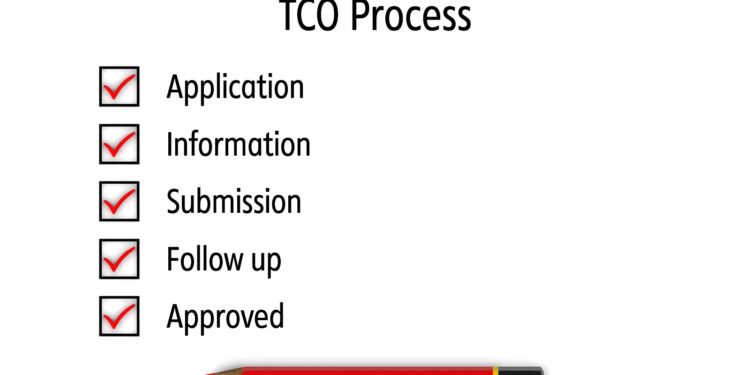EASA Announces TCO Authorization – New Requirements for Business Aviation

The European Aviation Safety Agency (EASA) has announced Third-Country Operator (TCO) authorization requirements for all non-European Union (EU)-registered commercial operators traveling to the EU. This new regulatory requirement impacts both scheduled commercial and charter (non-scheduled commercial) operations.
The following is an overview of what you need to know:
1. Many corporate operations to the EU are being affected
TCO authorization requirements impact all non-EU registered operators who perform flights to the EU under Air Operator Certificates (AOCs) – regardless of the specific purpose of the flight or flight leg. This requirement also applies to certain non-EU countries in Europe, including Switzerland. Even if your flight is private non-revenue, you’ll need to have TCO authorization when operating with a management company’s charter certificate. As long as your flight is under operational control of a company with an AOC, you’ll need TCO authorization – regardless of whether you’re operating the specific flight leg as private or charter.
2. Reasons for this new regulation
EASA has implemented TCO authorization for general safety and security purposes. We do not know, at this time, what other specific purposes this regulation may serve. It may be that EASA wants to monitor operator patterns – in terms of certain compliance issues. There is, of course, potential for additional EASA-mandated TCO authorization requirements to be added to the process in the future. All of this, however, remains unknown at this time.
3. TCO authorizations are operator-specific
Authorizations from EASA are required for the operator and not specific aircraft. If you operate all flights under a management company, then the management company applies for and obtains the TCO authorization. If you have your own AOC, in addition to being under a management company AOC, then two TCO authorization applications must be submitted.
4. TCO authorization – what it involves
This authorization is obtained from EASA after submitting a TCO application online. While your application must reference information found on documentation, no actual documents are required to be submitted with the application. After TCO authorization is approved the operator, remains responsible for informing EASA of any material changes to what’s been submitted on the application.
5. Applying for a TCO
EASA released this new regulation (EU 452/2014) on May 26, 2014, and a six-month grace period is allowed for operators to submit TCO applications. So, by November 25, 2014, you’ll need to submit a TCO application if you plan to operate charter flights to the EU, or private non-revenue flights under operational control of a company with an AOC. There will then be a 30-month grace period for EASA to review all submitted applications. Applying for TCO authorization is just a matter of completing an online application and submitting it to EASA. Operators obtain the TCO authorization application online from EASA’s website and submit it to EASA via e-mail, fax, or mail. Some operators have submitted their applications and received acknowledgement within a few days. Your 3rd-party provider may be able to assist in this process; however, the operator must provide a declaration allowing the 3rd-party provider to act on the operator’s behalf. We recommend that operators take care of this application process directly with EASA.
6. Information required on TCO authorizations
To complete an online TCO authorization application, you’ll need to provide:
- operator and contact information
- AOC details
- contact person or administrator
- historical information on any Safety Assessment of Foreign Aircraft ramp checks you have been subjected to
- status of operator (i.e., any restriction or bans from any EU country)
7. TCO revisions and expirations
Currently, there’s no expiration date on TCO authorizations once they’ve been obtained. However, this may change due to evolving EASA requirements. Revisions to TCO authorizations are needed if any information on a submitted application – such as AOC number and/or contact information – changes. Lead time to revise a submitted TCO authorization is unknown at this time.
8. It’s best to apply sooner rather than later
Each EU member state will likely have varying procedures and deadlines in terms of TCO applications. For example, Italy’s Ente Nazionale per l’Aviazione Civile, the civil aviation authority, has already begun requesting that completed TCO applications be submitted in order to obtain charter permits for Italy. From this point on, all Italian charter permit requests must be accompanied by confirmation of a TCO application having been submitted. The UK Civil Aviation Authority is also expected, in the near term, to require TCO authorization to be submitted for all charter permit requests. For this reason, its best practice to submit your TCO application to EASA as soon as possible and to forward a copy of this confirmation to your 3rd-party provider for EU charter permit purposes.
9. Repercussions for not having TCO authorization
If you do not have TCO authorization after the grace period expires on November 25, 2014, you may not be permitted to travel within EU airspace if you’re non-EU registered and flying under an AOC. Be aware that if an operator gets reprimanded by EASA for not having TCO authorization, all aircraft under the particular operator certificate may be affected. There are already some EU countries – specifically Italy – that now deny or delay charter permit applications if the operator does not submit a copy of application for TCO authorization with the permit request.
Conclusion
Non-EU-registered aircraft operating to the EU under AOCs should submit TCO authorization applications without delay. That is because certain countries will soon require evidence of a TCO authorization submission before they’ll issue charter permits. It’s best to review TCO authorization information available on EASA’s website and register to receive latest EASA news updates.
Questions?
If you have any questions about TCO authorization or have other questions about charter aircraft operations worldwide, contact me at adamhartley@univ-wea.com.




